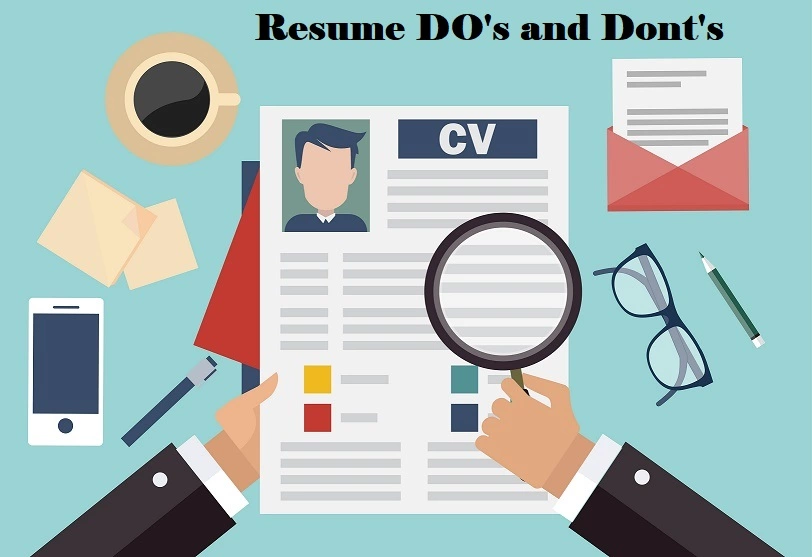Blog Detail

Land Your Dream Job with These Jaw-Dropping Accounting Resumes
Jun 15, 2024
Land Your Dream Job with These Jaw-Dropping Accounting Resumes
In the intricate and competitive realm of accounting, where precision and attention to detail are not just preferred but required, your resume serves as the gateway to your dream job. In this comprehensive guide, we will delve into the intricacies of crafting an exceptional accounting resume that not only captures attention but propels you ahead in the fiercely competitive job market.

1. Start with a Strong Header:
The header of your resume is akin to the title of a book; it sets the tone for what's to come. Ensure it's strong and attention-grabbing. Begin with your full name, in a professional font, slightly larger than the rest of the text. Follow this with a professional-sounding email address, avoiding quirky or unprofessional handles. Include an easily reachable phone number and, in the digital age, consider adding a LinkedIn profile URL. Make sure your LinkedIn profile is well-polished and aligns with the professional image you want to convey.
2. Craft a Compelling Summary:
The resume summary is your elevator pitch, a brief yet impactful introduction. It should encapsulate your professional journey, highlighting key skills, years of experience, and a glimpse into your career achievements. This section should pique the recruiter's interest, prompting them to read further. Consider tailoring this section for each application, emphasizing the skills and experiences most relevant to the specific job.
3. Showcase Relevant Skills:
In the fast-paced and evolving field of accounting, showcasing your relevant skills is crucial. Create a dedicated section that outlines your technical skills, software proficiencies, and any other capabilities that make you a standout candidate. For instance, proficiency in accounting software like QuickBooks or expertise in financial modeling could be critical. Align these skills with the requirements of the job you're applying for to demonstrate your suitability.
4. Highlight Professional Experience:
Your work history is the meat of your resume. However, it's not just about listing duties; it's about highlighting accomplishments. Use action verbs to describe your responsibilities, making them more dynamic and engaging. Quantify your achievements wherever possible. Instead of stating you "handled financial reports," say you "improved financial reporting processes, resulting in a 20% increase in efficiency." This not only communicates your responsibilities but also showcases the impact you've made.
Consider using the STAR (Situation, Task, Action, Result) method when detailing your experiences. This not only provides a clear structure but also helps the reader understand the context and significance of your achievements.
5. Emphasize Education and Certifications:
In the accounting profession, academic qualifications and certifications carry significant weight. Clearly list your educational background, including degrees earned and institutions attended. Additionally, showcase any relevant certifications, such as Certified Public Accountant (CPA), Chartered Financial Analyst (CFA), or others that align with your specialization.
If you're a recent graduate, your education section might take precedence. Conversely, if you have considerable experience, your work history could be the focal point. Tailor the emphasis based on what strengthens your candidacy for the specific role.
6. Include a Section for Achievements:
Separate from your work history, create a dedicated section to showcase your notable achievements. This could include successful projects, special recognitions, or any awards you've received. These achievements provide tangible evidence of your abilities and contribute to building a compelling narrative about your professional journey.
Don't shy away from including metrics and numbers to quantify your achievements. For example, if you implemented a cost-saving measure, specify the percentage of cost reduction. Quantifiable achievements add substance to your resume and demonstrate your impact on previous employers.
7. Tailor Your Resume to the Job Description:
Generic resumes are quickly sidelined in favor of those tailored to the specific job at hand. Carefully analyze the job description and requirements, then align your resume accordingly. Incorporate relevant keywords to ensure your resume passes through applicant tracking systems (ATS) and reaches human eyes. Tailoring your resume doesn't mean fabricating information; rather, it's about emphasizing the aspects of your experience that resonate most with the prospective employer's needs.
8. Utilize the Accountant Resume Sample for Inspiration:
To further solidify these principles, let's delve into a practical example. Explore this Accountant Resume Sample to see these tips in action. This comprehensive example serves as a template, illustrating how to structure your resume effectively.
Break down the sample resume section by section, analyzing how the candidate has presented their information. Take note of the language used, the balance between responsibilities and achievements, and how the skills and qualifications align with the accounting industry's expectations.
Final Thoughts:
In the dynamic world of accounting, where financial landscapes evolve and regulatory frameworks change, a well-crafted resume is your passport to opportunities. By meticulously incorporating a strong header, compelling summary, relevant skills, and showcasing your professional experience, education, and achievements, you can create a resume that not only captivates recruiters but also sets you apart in a competitive job market.
Remember, your resume is a living document that should evolve with your career. Regularly update it to reflect new skills, experiences, and achievements. A resume is not just a record of your past; it's a strategic tool to propel you towards a future filled with professional fulfillment and success in the field of accounting.








